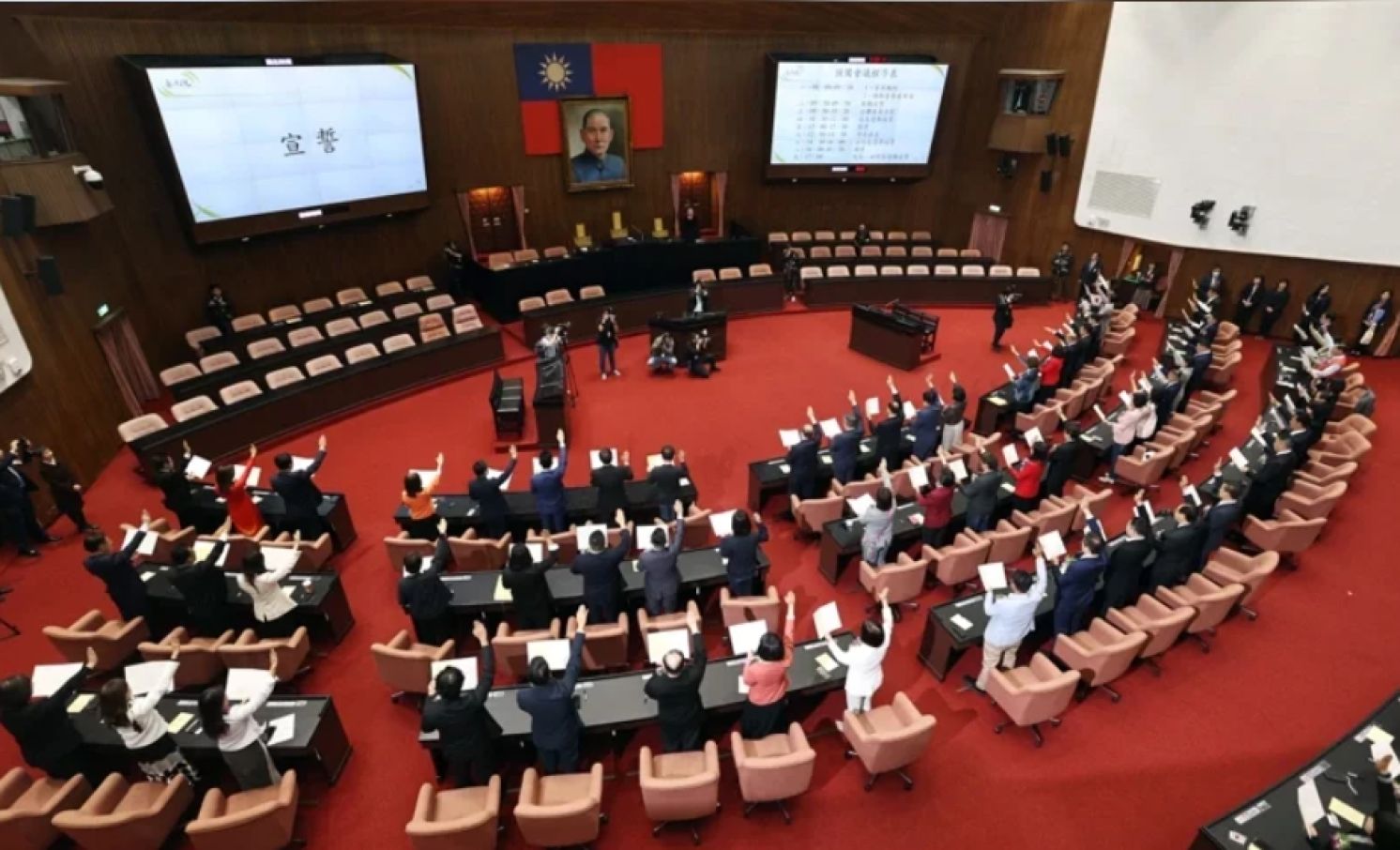
Legislative Yuan Must Reclaim Investigative and Hearing Powers, Strive for Accountability
United Daily News Editorial, February 8, 2024
With the inauguration of a new Legislative Yuan and significant changes in party representation, the Legislative Yuan is poised to shed its image of subservience to the Executive, aiming to fulfill its role as a check and balance, effectively scrutinizing the government. The Taiwan People’s Party (TPP) has spearheaded the call for the establishment of a legislative investigative and hearing system, outlining four demands, while the Kuomintang (KMT) has put forth five proposals, including the presentation of a presidential state-of-the-nation report, the formulation of contempt of parliament laws, and the establishment of legislative investigative and hearing powers.
Speaker Han Kuo-yu of the Legislative Yuan has also pledged to lead legislative reforms, transforming its confrontational image into that of reasoned discourse.
Three decades have passed since the Legislative Yuan first underwent a comprehensive, all-out election in Taiwan, but key bills for legislative reform, such as the "Act on the Exercise of Powers of the Legislative Yuan" and the "Conduct of Legislators Act," have remained largely unchanged for over two decades. The enhancement of legislative investigative and hearing powers has consistently been a focal point in the exercise of legislative authority, with proposals from various parties over the years failing to translate into legal amendments. The root cause lies in the alternating political landscape, where the ruling party, in a bid to safeguard executive powers, has been unwilling to initiate effective reforms to strengthen legislative authority. The manipulation of legislative principles and suppression of opposition views during parliamentary operations, particularly the resistance to proposals like contempt of parliament laws, reflects the ruling party's strong opposition. This perennial standoff has resulted in the stagnation of legislative reform bills.
The administration of President Tsai Ing-wen initially championed reform, calling for the "breakdown of closed-door negotiations" and insisting on a "neutral speaker." The 9th Legislative Yuan from 2016 to 2020 later amended the "Organic Law of the Legislative Yuan," stipulating that the Speaker and Deputy Speaker "shall not concurrently hold party positions," and party negotiations would be broadcast live, aiming to bring transparency into the legislative process. However, the notions of "non-partisan" and "neutral in proceedings" are distinct. A glaring example is then-Speaker Su Jia-chyuan's protection of the NT$800 billion (about US$25.4 billion) budget of the Forward-looking Infrastructure Plan. Interpreting the rules of procedure as "non bis in idem," he thwarted opposition proposals and set a precedent of "budget first, plan later." Such a lack of neutrality by the Speaker is evident to the public.
Likewise, the Democratic Progressive Party (DPP) since the 9th Legislative Yuan has exerted overwhelming dominance, rendering party negotiations a formality. In the face of voting battles, the opposition parties have been like mantises trying to stop a chariot, resulting in the overall weakening of the parliament. Then-Premier Su Tseng-chang openly insulted legislators in the chamber, and officials engaged in verbal sparring with legislators during question sessions, rendering questioning a mere exercise in rhetoric and disregarding the dignity of the Legislative Yuan. It's for these reasons that the opposition parties advocate for the establishment of "contempt of parliament" laws and the implementation of legislative investigative and hearing systems to equip the Legislative Yuan with effective oversight tools, preventing abuses and corruption within the executive branch.
However, reforms alone are insufficient. The Legislative Yuan has previously conducted reviews and hearings but often failed to effectively counterbalance executive powers. If legislators lack expertise or diligence in their duties, mere volumes of files won't reveal the intricacies of the issues at hand. In the past, opposition legislators, feeling powerless to counterbalance, resorted to grandstanding during questioning sessions, while many were indifferent to their legislative duties. However, in the new tri-party Legislative Yuan, where none commands a majority, such "comfortable times" are unlikely to recur. People have high expectations for the new Legislative Yuan, and if opposition legislators cannot effectively consolidate their efforts and achieve tangible results in checks and balances and unveiling malfeasance, they will struggle to justify their mandate to reform supporters. This is also why Speaker Han is keen to promote legislative reform.
Half of this Legislative Yuan is composed of new legislators, all eager to make an impact. However, to confront the executive branch effectively, a collective effort from the parties and legal acumen in questioning are essential. It is crucial to bring government excesses under control. Still, the empowerment of legislative authority cannot be boundless. The new Legislative Yuan can deliberate on reinstating the Special Investigation Division or establishing mechanisms for the judiciary to assist legislative investigations. However, creating a "Parliamentary Special Investigation Division" within the current institutional framework may prove challenging. Even if the United States Congress has the power to rule on “congressional contempt,” such cases must be heard by the judiciary to not infringe on judicial power. These legal endeavors require meticulous and precise professional considerations, not achievable by mere rhetoric.
The assertion of legislative authority relies on legal principles and wisdom. Allowing diverse opinions to surface, echoing public sentiments, and restraining arbitrary actions of the government are the rightful actions of a democratic legislature. This is the challenge for Speaker Han. It is with hopes that after the Chinese New Year, a new Legislative Yuan will usher in a new era.